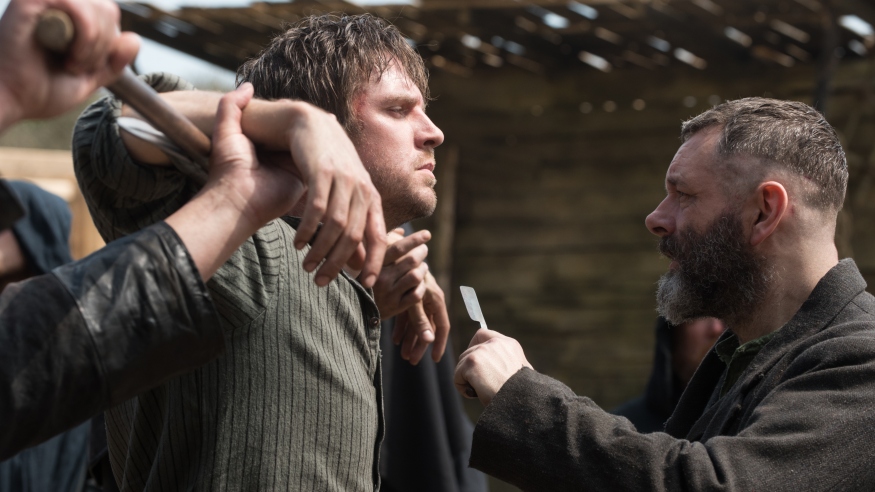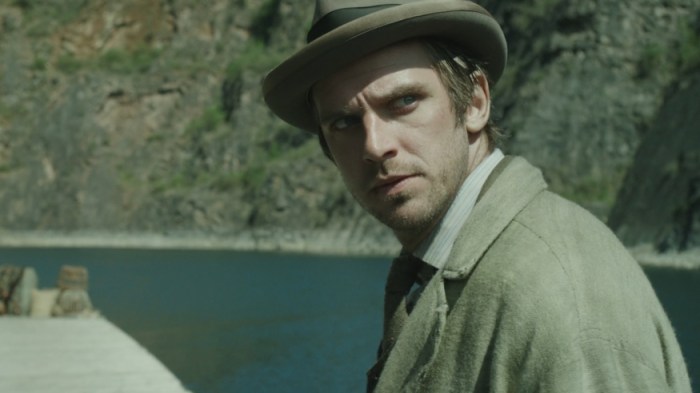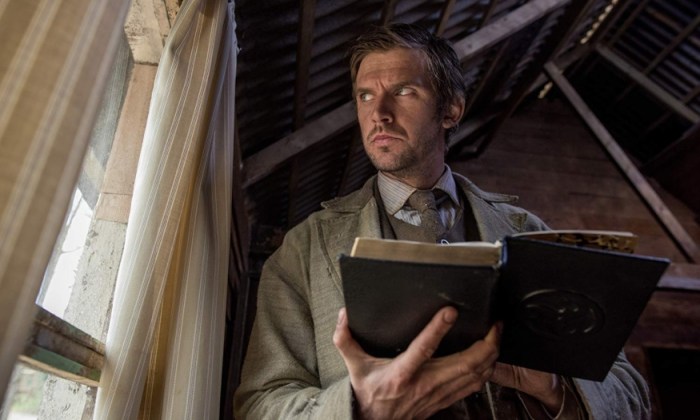Apostle is terrifying for a number of reasons.
Not only is it the kind of horror film that creeps under your skin and patiently distresses you with its atmosphere and suspense, but there are also scenes of quick, brutal horror and violence that immediately make you recoil, too.
A big reason for its success is the potent Welsh combination of writer and director Gareth Evans and the titanic performance of Michael Sheen, who plays Malcolm, the leader of a reclusive Welsh religious cult, who is holding Thomas Richardson (Dan Stevens)’s sister for ransom.
Richardson travels to the remote island they call home to save her, but soon becomes embroiled in its dark and dangerous world.
I recently had the chance to talk to both Evans and Sheen about “Apostle,” and they both admitted that they used real political and religious events from Welsh history as inspiration to build the twisted and terrifying mythology of the film.
“It is not often that I get to play a character Welsh,” explained Sheen. “We wondered where this character should be from. I got really interested in what was going on around Wales at that time with the Welsh revival in 1905.”
“So there was something interesting going on with religion and politics, the Labour Party was just starting to emerge with the unions and working people were getting representation in a new way. There was a growing thing in the South Wales area, where I come from.”
“It wasn’t like I was drawing on real figures. It was just getting the sense of the currents and what was going on at that time.”
“But there was this growing sense that Malcolm would have been a political prisoner of some kind. I could see how a figure like that, with what was going on in the chapels across Wales and politically, could find himself in this situation.”
“So I thought it would be an interesting way to explore that. I loved giving the barn-storming, preacher stuff at the beginning in Welsh, too, it just seemed to suit it really well.”
“It was something that kind of grew and became more detailed as we added more and more layers to it,” added Evans.
“We would throw images and ideas and storylines together, all of which built up what the island might be, what the belief system was, what were the differences between the ideology of Malcolm’s politics and the theology of the religion that he preaches, or pretends to preach. It all started to come together.”
“I knew that I didn’t want it to be a contemporary film, and do away with the trappings of modern technology. I didn’t want to have to explain how he could just get off the island. I didn’t want him to be able to escape.”
“That immediately raises the question of, ‘Even once he has saved his sister, how does he get off this island?’ So that added its own sense of pervasive dread. That gave us own definitive time period.”
“That time period tied in with my ideas over the turn from the Victorian into the Edwardian period of 1905. So it all started from there, and we started to create the mythology of the island, too.”
“Apostle” is released on Netflix on October 12, while you can read more from my interviews with both Evans and Sheen below.
Talk about meeting Gareth, was there an instant Welsh kinship?
MS- I got sent the script first before I met Gareth. I had been following his career for a while because he is a fellow Welshman. It was such a surprise when I found out that “The Raid” films had been directed by a Welshman from Hirwaun. It was like, ‘What? What is going on there.’ So he had been on my radar. I was instantly interested to see what he had come up with the script. There were so many weird elements to the script that I had just never seen before. So when I did get to sit down with Gareth and talk to him it didn’t take long to get a sense of how much he loves films, especially cult ones. He is really steeped in Asian cinema, too, from his time over there. He has brought lot of elements from Asian cinema into a Western tradition, drawing on stuff from “The Wicker Man” and “The Devils.” I certainly wasn’t use to seeing these elements over here. Then they were shooting the film in my home town. So I got to stay with my mum and dad as we made the film.
How much research did you do on religious cults for the film?
GE – Not too much on the cult stuff. I had done a lot of research in the past, especially on the Jonestown Cult massacre. Which was deeply, deeply disturbing. When it came to Apostle I already had that research in the back of my head. But what was more interesting to me was the idea of trying to do a film that would fit in the sub-genre of what is known as the British folk-horror. To look at those films and really study them and really get to the grips with what was the aesthetic quality of those films and what was it about the behavior traits of the characters that was every so slightly askew and off kilter and make me as an audience member feel so unsettled from frame 1 all the way through to the end. That sense of dread and unease never lets up, because it is all-encompassing and all around you, that was what was really of interest.
Was there anything that really struck you about working with Gareth?
MS – The thing that really struck me about “The Raid” films is that they are just so intense. They are just full on all the way through. Obviously with this film this is a different kind of story and different kind of film. In that there aren’t action scenes going on all the way through. But it still has that kind of intensity. The way Gareth uses the soundtrack, music, and sound effects, the way he uses atmosphere, different kinds of shots, he creates that same kind of intensity. It may not be through constant action or violence. There is a pitch of intensity that he is still able to maintain. But just using different things. That definitely impacted my performance and the way I was doing it. His ability to have you there and in the situation. The real kinetic feel of “The Raid” films, which make you feel like you are in the corridors and the rooms with the action. He has brought that to this film, not just in the violence or the horror that break out and you see. It is made more effective by the build to it, so you feel the menace and the suspense and then there is a brutal and quick release. It certainly makes you feel like you’re in the middle of it, rather than just watching it. He is always editing it on set, so that helps to make you feel very present when you are filming it.

















